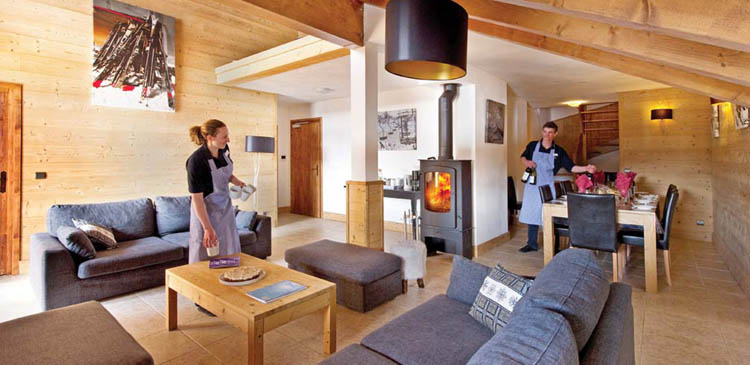In the midst of snow-capped mountains and crisp winter air, skiing isn’t just a thrilling adventure; it’s also a fantastic way to boost your overall health and fitness. Beyond the adrenaline rush and picturesque landscapes, skiing at luxury catered ski chalet val thorens offers a plethora of physical and mental benefits that make it an ideal winter activity for individuals of all ages. Let’s delve into the remarkable ways that hitting the slopes can enhance your well-being.
Cardiovascular Fitness
Skiing is a full-body workout that engages various muscle groups while simultaneously elevating your heart rate. Whether you’re cruising down groomed trails or tackling challenging slopes, the continuous motion of skiing requires considerable cardiovascular endurance. As you glide through the snow, your heart pumps harder, improving circulation and strengthening your heart and lungs over time.
Strength and Muscle Tone
From navigating turns to maintaining balance, skiing demands significant muscular effort, particularly in the legs, core, and upper body. As you carve your way down the mountain, your quadriceps, hamstrings, glutes, and calf muscles work in unison to control your movements and absorb the terrain’s impact. Additionally, the constant shifting of weight and use of poles engage your core and upper body muscles, leading to improved strength and muscle tone.
Balance and Coordination
Balancing on skis while maneuvering through varying terrain challenges your coordination and proprioception—the body’s awareness of its position in space. Negotiating turns, moguls, and obstacles requires precise movements and quick adjustments, honing your balance and coordination skills with each descent. Over time, this enhanced sense of balance not only improves your skiing prowess but also carries over to other activities, reducing the risk of falls and injuries.
Flexibility and Range of Motion
Skiing involves a wide range of motions, from deep knee bends during turns to reaching with your poles for stability. These dynamic movements promote flexibility in the joints and muscles, increasing your overall range of motion and reducing stiffness. Regular skiing can help prevent muscle imbalances and tightness, contributing to better posture and joint health.
Mental Well-Being
Beyond its physical benefits, skiing offers numerous mental health perks. The serene beauty of snow-covered landscapes and the exhilaration of gliding down the slopes can reduce stress and boost mood. Skiing also provides an opportunity for mindfulness, as you focus on the present moment and immerse yourself in the natural surroundings. Additionally, the sense of accomplishment and satisfaction that comes from conquering new challenges on the mountain can enhance self-esteem and mental resilience.
Tips for Safe and Effective Skiing:
- Always warm up before hitting the slopes to prepare your muscles and joints for activity.
- Stay hydrated and fuel your body with nutritious foods to maintain energy levels throughout the day.
- Start with slopes that match your skill level and gradually progress to more challenging terrain as you build confidence.
- Invest in proper ski equipment and ensure it fits correctly to maximise comfort and performance.
- Practise good skiing technique and follow safety guidelines to minimise the risk of injuries.
In conclusion, skiing isn’t just a winter pastime; it’s a holistic activity that promotes physical fitness, mental well-being, and a deep connection with nature. Whether you’re a seasoned skier or a novice hitting the slopes for the first time, embracing the health benefits of skiing can enrich your life and leave you craving more adventures in the snow. So, bundle up, grab your skis, and embark on a journey to a healthier, happier you this winter season. Happy skiing!



